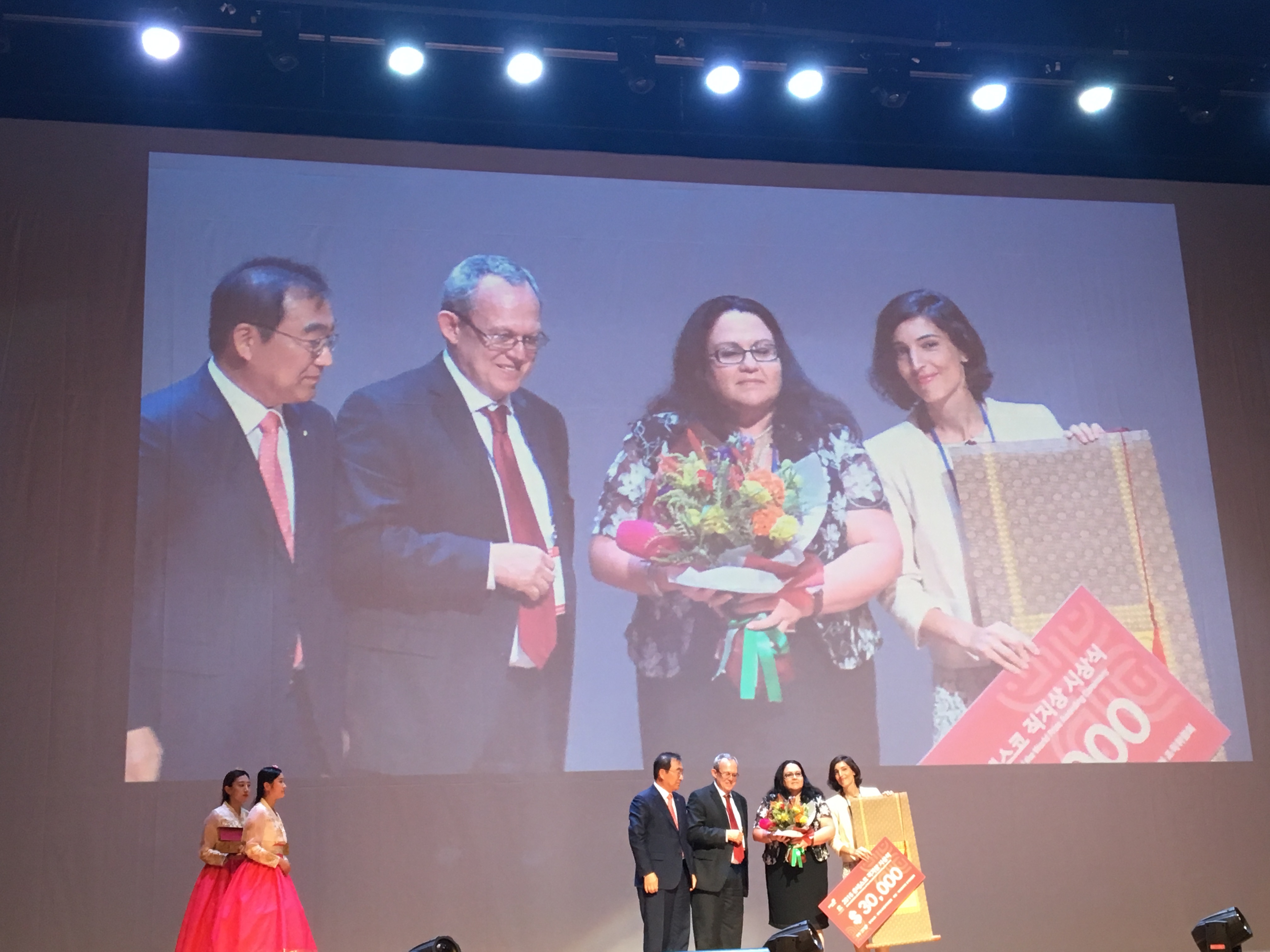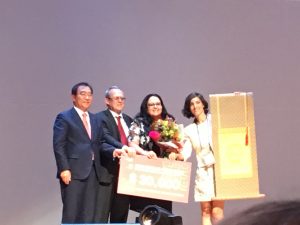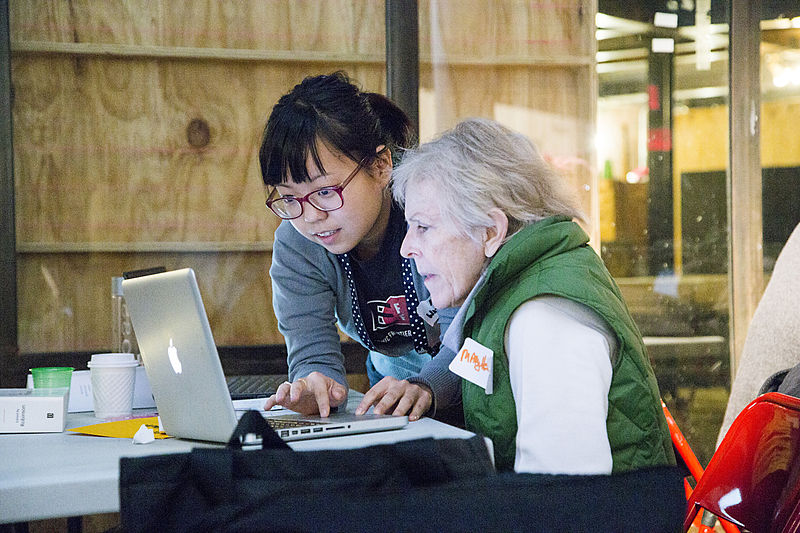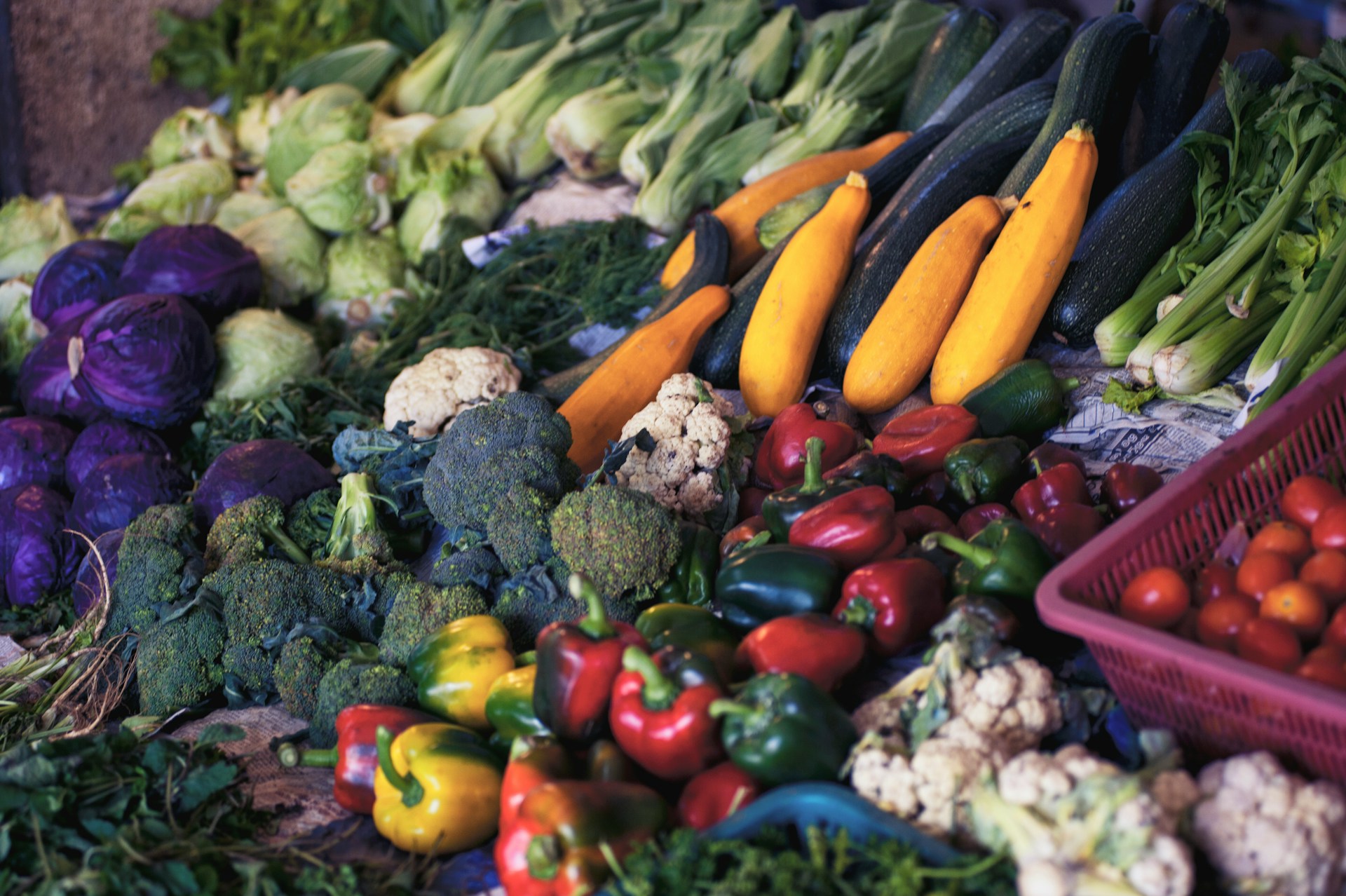Editor’s Note: The following article was previously published by Yonhap News Agency.
In 2004, three years after confirming “Jikji” as the world’s oldest extant book printed with movable metal type, the U.N. Educational, Scientific and Cultural Organization (UNESCO) decided to establish a prize in memory of its designation as world documentary heritage.
The biennial UNESCO Jikji Memory of the World Prize is awarded to an individual or group who has made a contribution to preserving and promoting documentary heritage. The National Library of the Czech Republic received the inaugural honor in 2005, with four other institutions being awarded it so far.
This year’s award with prize money of US$30,000 will be presented to the Iber Archives, an institution that Latin American countries established in 1999 to cooperate in preserving documentary heritage, on the opening day of the Jikji Korea Festival.
PHOTO CREDIT: Jikji Korea
About 40 institutions from 30 countries across the world have competed to win the 6th UNESCO Jikji Memory of the World Prize.
A day after the award ceremony, a roundtable meeting of the prize winners will be held to foster cooperation among them and help cement the futuristic value of documentary heritage. Frank La Rue, assistant director-general of communication and information at UNESCO, and other experts are slated to attend the meeting.
The Jikji Korea Festival is scheduled to open Thursday in the central South Korean city, some 130 kilometers south of Seoul, for an eight-day run under the theme of “Jikji, Enlightening the World,” to shed new light on its creative value, bringing together world-renowned writers and scholars.
Related Article: “EXPLORING THE BEGINNING AND THE END OF HUMAN EXISTENCE“
Printed at the city’s Heungdeok Temple in 1377 during Korea’s Goryeo Dynasty, Jikji, which means “to point to the right direction,” is the abbreviated title of “Jikjisimcheyojeol,” a collection of Buddhist treatises and teachings.
Jikji, which predates by 78 years the Gutenberg Bible in Germany, was originally printed in two volumes, but today only the second volume remains and is stored in France’s Bibliotheque Nationale, or National Library.
It is believed to have been brought to Paris by a French diplomat and publisher, Collin de Plancy, who came to Korea in 1886 after the two countries forged a trade pact.
After reappearing at an international book fair in France in 1972, the work drew global attention, prompting experts to rewrite the history of printing. It eventually encouraged the Paris-based UNESCO to designate Jikji as a Memory of the World in 2001, a program aimed at preserving and disseminating the world’s key documentary heritage.
For a full mindmap containing additional related articles and photos, visit #Jikji
Cheongju, home to the world’s oldest movable metal type, has held the Jikji Festival since 2003 as part of efforts to develop the city into a “hub of printing culture” like Germany’s Mainz and to further promote the metal-type text around the world.
On the third day of the festival, a global association of printing museums will hold an inaugural assembly with 36 museums from 20 countries applying to attend. The association will serve as an international network for greater cooperation among them.
The main exhibition with the theme of “Jikji, Golden Seed” will feature 57 works created by 35 teams of writers and artists from Britain, Canada and nine other countries. The works range from analog to digital and media arts, giving visitors a glimpse into the creative and historic value of Jikji.
In particular, world-renowned industrial designer Ron Arad will take part in the upcoming festival by designing a pavilion that is capable of accommodating some 30 people and will be used as a space for various cultural lectures. It is shaped like the Jikji book placed face down, and made of iron, wood and paper.
PHOTO CREDIT: Jikji Korea
Printing relics, including the printing press used by Johannes Gutenberg, will also be displayed during the festival, whose programs also include experiencing ancient printing methods and performances of traditional plays and music.
“The festival will become an opportunity for Cheongju to emerge as a hub of documentary heritage and printing culture,” an organizing committee official said. “It will also help share the futuristic vision of documentary heritage globally.”
Recommended Reading: “COMPLEX VIEW OF ISLAM FOUND IN POETRY OF IRAN, STANFORD RESEARCHER SHOWS“
_ _












